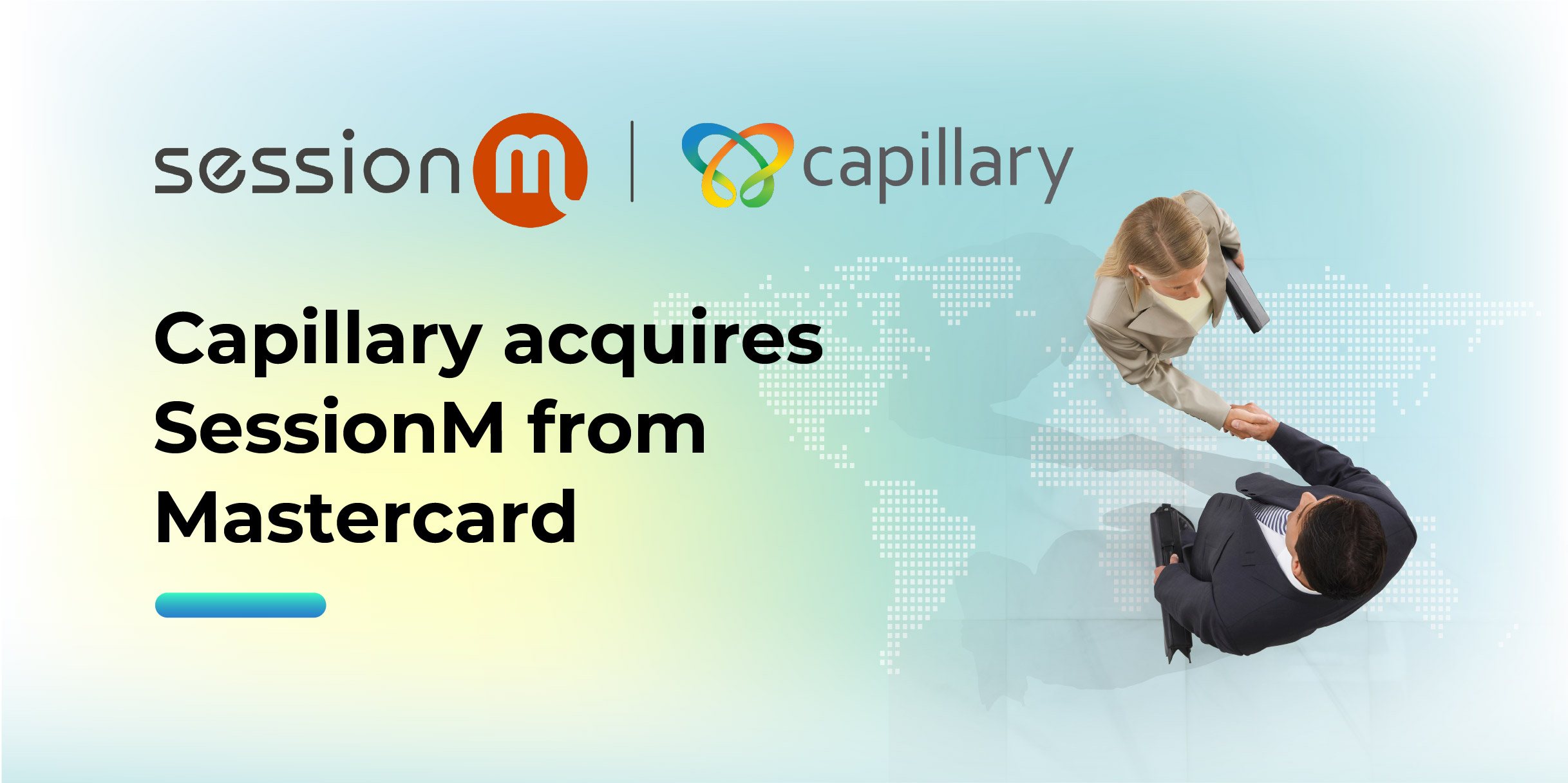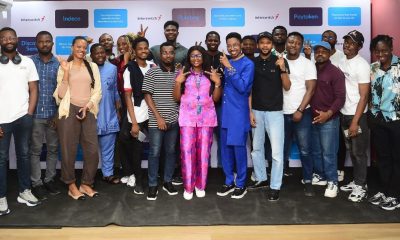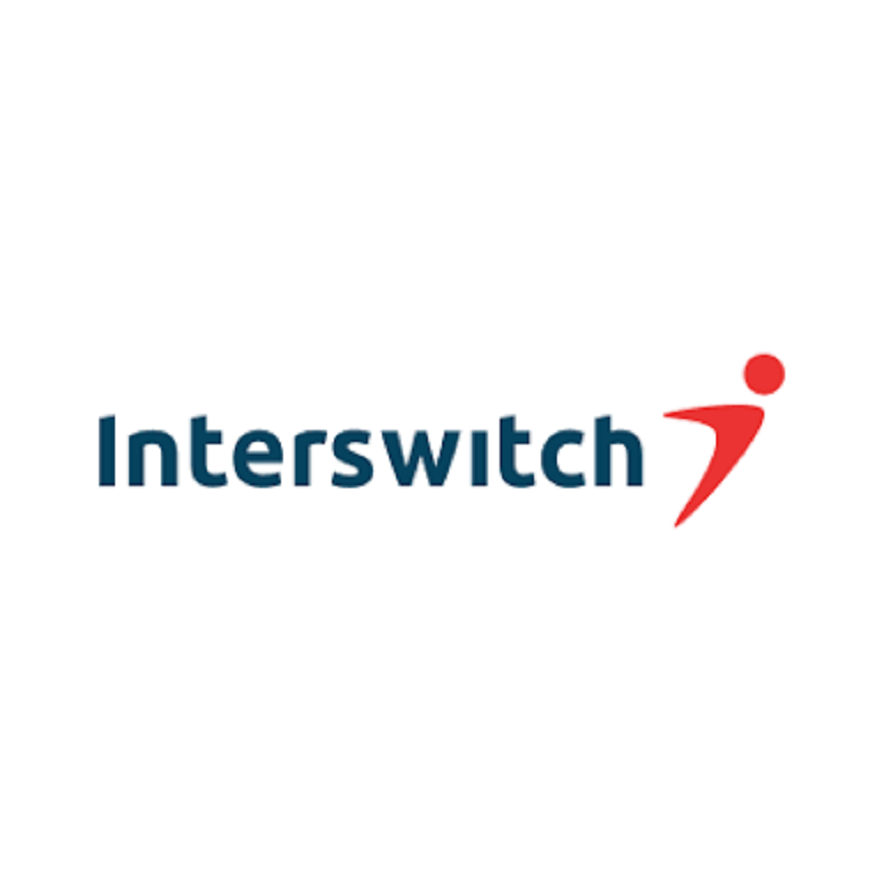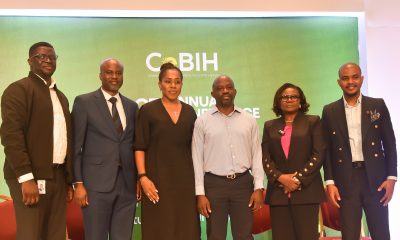Technology
Interswitch, Developers, Others Share Ideas at The Coded Meetup

By Adedapo Adesanya
Interswitch has hosted developers and other tech ecosystem stakeholders to an insightful session in Lagos tagged The Coded Meetup, where the company presented a plethora of its cutting-edge APIs designed to strengthen the digital payment ecosystem in the country and beyond.
The event, which was held on Saturday, June 10, 2023, at GoMyCode Lagos, was a resounding success, gathering a diverse and dynamic community of tech developers and enthusiasts.
The Developer Connect Series is a catalyst for collaboration, innovation, and growth within the Interswitch Developer Community. Attendees, consisting of seasoned Developers, Product Designers, Product Managers, and those just starting their tech careers, enjoyed immersive learning, gained valuable insights and were awash with networking opportunities.
Participants were reintroduced to the Interswitch Developer Referral Program, designed to incentivize Developers, Product Managers, and Product Designers who refer partners, colleagues, or business owners to Quickteller Business. With the Interswitch Developer Referral Program, referrers earn a 5 per cent commission for 5 years (5 for 5) on transaction fees when clients referred register on Quickteller Business, integrate Interswitch Payment Gateway, and consummate transactions. This initiative reinforces Interswitch’s commitment to empowering and rewarding its Developer Community.
During the event, Interswitch APIs and use cases were showcased, unlocking a world of possibilities for seamlessly integrating payment solutions, value-added services, and other financial services into their applications. By harnessing the power of Interswitch APIs, Developers can create transformative solutions and deliver unparalleled experiences to their customers.
Speaking at the event, Mr Babafemi Ogungbamila, Chief Information Officer, Interswitch, said the company is at the forefront of driving the growth of the Developer Community not only in Nigeria but also across Africa.
He further stated with the current realities of the fintech ecosystem in Nigeria, opportunities abound for Developers to explore, design cutting-edge products, improve offerings, and provide superior user experience to customers.
He said, “At Interswitch, we remain committed to closing the gap in the payment ecosystem, this is why we organised The Developer Connect Series to empower and equip Developers with our APIs and enable them to thrive”.
Mrs Oluwakemi Nwogu, Group Head, Product Management, Interswitch, said businesses are increasingly relying on APIs to improve their processes, enhance customer experience, and drive innovation.
She reintroduced participants to the unique features of the Interswitch API Platform, which was designed to help developers integrate seamlessly, noting that the platform is safe and secure.
“We believe that our API Platform will play a crucial role in facilitating digital transformation and provide an ecosystem that connects financial institutions, fintechs, and innovators to service providers. The Interswitch API Platform currently carries an extensive catalogue of Interswitch APIs and will extend to include a wide range of APIs from other reliable providers. The platform also has a user-friendly interface for developers to manage their API integration, analytics, and support resources in one place.”
She urged the Developers, Product Designers, and Product Managers to join the Interswitch Developer Community and leverage the community to innovate and collaborate.
Interswitch representatives and other industry experts spearheaded engaging discussions, shedding light on the latest industry advancements and emerging trends. These insightful conversations invigorated attendees, equipping them with forward-thinking perspectives and inspiring ideas to shape the future of digital payments, e-commerce, and technology-driven solutions.
Technology
Capillary Technologies Acquires SessionM from Mastercard

By Modupe Gbadeyanka
A software product company established in 2012, Capillary Technologies India Limited, has acquired the customer engagement and loyalty company, SessionM, from Mastercard.
This followed a definitive agreement signed by the global leader in AI-powered customer loyalty and engagement solutions with the renowned digital payments firm.
The acquisition of SessionM is the latest in a series of strategic moves by Capillary, following its successful listing on the Indian Stock Exchange in November 2025.
With SessionM in its portfolio, Capillary reinforces its position as a global leader in enterprise loyalty, offering a leading platform to the world’s most sophisticated enterprise brands.
Mastercard has identified Capillary Technologies—consistently recognised as a Leader in The Forrester Wave as the ideal partner to lead SessionM into its next era of growth.
As part of the agreement, a specialised team within SessionM will transition to Capillary, ensuring that the platform’s deep technical expertise is preserved.
SessionM’s esteemed global customer base—which includes Fortune 500 retailers, airlines, and CPG brands—will continue to receive the same high-calibre support and service they experienced before the acquisition.
“M&A has been a key growth strategy for Capillary over the years, and as a public company, we are delivering on that promise to our shareholders and the market.
“By bringing SessionM into our portfolio, we are not just expanding our footprint across the globe; we are further strengthening our loyalty capabilities to deliver one of the industry’s most comprehensive offerings.
“Our mission remains to provide enterprises across industries with specialised, AI-native loyalty technology solutions,” the chief executive of Capillary Technologies, Aneesh Reddy, commented.
Technology
Emergent Ventures, Others Invest $2.2m in Potpie

By Dipo Olowookere
About $2.2 million pre-seed round to help engineering teams unify context across their entire stack and make AI agents genuinely useful in complex software environments has been announced by Potpie.
Potpie was established by Aditi Kothari and Dhiren Mathur, who were determined to unify context across the entire engineering stack and enabling spec driven development.
As generative AI adoption accelerates, most tools focus on surface-level code generation while ignoring the deeper problem of context.
Large language models are powerful, but without access to system-level understanding, tooling history, and architectural intent, they struggle in real production environments.
Traditional approaches rely on senior engineers to manually hold this context together, a model that breaks down at scale and fails when AI agents are introduced.
The platform enables teams to automate high-impact and non-trivial use cases across the software development lifecycle, like debugging cross-service failures, maintaining and writing end-to-end tests, blast radius detection and system design.
It is designed for enterprise companies with large and complex codebases, starting at around one million lines of code and scaling to hundreds of millions.
Rather than acting as another coding assistant, Potpie builds a graphical representation of software systems, infers behaviour and patterns across modules, and creates structured artefacts that allow agents to operate consistently and safely.
A statement made available to Business Post on Monday revealed that the funding support came from Emergent Ventures, All In Capital, DeVC and Point One Capital.
The capital will be used to support early enterprise deployments, expand the engineering team, and continue building Potpie’s core context and agent infrastructure, it was disclosed.
“As AI makes code generation easier, the real challenge shifts to reasoning across massive, interconnected systems. Potpie is our answer to that shift, an ontology-first layer that helps enterprises truly understand and manage their software,” Kothari was quoted as saying in the disclosure.
A Managing Partner at Emergent Ventures, Anupam Rastogi, said, “In large enterprises, the real challenge is not generating code, it is understanding the system deeply enough to change it safely.
“Potpie’s ontology-first architecture, combined with rigorous context curation and spec-driven development, creates a structured model of the entire engineering ecosystem. This allows AI agents to reason across services, dependencies, tickets, and production signals with the clarity of a senior engineer. That is what makes Potpie uniquely capable of solving complex RCA, impact analysis, and high-risk feature work even in codebases exceeding 50 million lines.”
Technology
Expert Reveals Top Cyber Threats Organisations Will Encounter in 2026

By Adedapo Adesanya
Organisations in 2026 face a cybersecurity landscape markedly different from previous years, driven by rapid artificial intelligence adoption, entrenched remote work models, and increasingly interconnected digital systems, with experts warning that these shifts have expanded attack surfaces faster than many security teams can effectively monitor.
According to the World Economic Forum’s Global Cybersecurity Outlook 2026, AI-related vulnerabilities now rank among the most urgent concerns, with 87 per cent of cybersecurity professionals worldwide highlighting them as a top risk.
In a note shared with Business Post, Mr Danny Mitchell, Cybersecurity Writer at Heimdal, said artificial intelligence presents a “category shift” in cyber risk.
“Attackers are manipulating the logic systems that increasingly run critical business processes,” he explained, noting that AI models controlling loan decisions or infrastructure have become high-value targets. Machine learning systems can be poisoned with corrupted training data or manipulated through adversarial inputs, often without immediate detection.
Mr Mitchell also warned that AI-powered phishing and fraud are growing more sophisticated. Deepfake technology and advanced language models now produce convincing emails, voice calls and videos that evade traditional detection.
“The sophistication of modern phishing means organisations can no longer rely solely on employee awareness training,” he said, urging multi-channel verification for sensitive transactions.
Supply chain vulnerabilities remain another major threat. Modern software ecosystems rely on numerous vendors and open-source components, each representing a potential entry point.
“Most organisations lack complete visibility into their software supply chain,” Mr Mitchell said, adding that attackers frequently exploit trusted vendors or update mechanisms to bypass perimeter defences.
Meanwhile, unpatched software vulnerabilities continue to expose organisations to risk, as attackers use automated tools to scan for weaknesses within hours of public disclosure. Legacy systems and critical infrastructure are especially difficult to secure.
Ransomware operations have also evolved, with criminals spending weeks inside networks before launching attacks.
“Modern ransomware operations function like businesses,” Mitchell observed, employing double extortion tactics to maximise pressure on victims.
Mr Mitchell concluded that the common thread across 2026 threats is complexity, noting that organisations need to abandon the idea that they can defend against everything equally, as this approach spreads resources too thin and leaves critical assets exposed.
“You cannot protect what you don’t know exists,” he said, urging organisations to prioritise visibility, map dependencies, and focus resources on the most critical assets.
-

 Feature/OPED6 years ago
Feature/OPED6 years agoDavos was Different this year
-
Travel/Tourism10 years ago
Lagos Seals Western Lodge Hotel In Ikorodu
-

 Showbiz3 years ago
Showbiz3 years agoEstranged Lover Releases Videos of Empress Njamah Bathing
-

 Banking8 years ago
Banking8 years agoSort Codes of GTBank Branches in Nigeria
-

 Economy3 years ago
Economy3 years agoSubsidy Removal: CNG at N130 Per Litre Cheaper Than Petrol—IPMAN
-

 Banking3 years ago
Banking3 years agoSort Codes of UBA Branches in Nigeria
-

 Banking3 years ago
Banking3 years agoFirst Bank Announces Planned Downtime
-

 Sports3 years ago
Sports3 years agoHighest Paid Nigerian Footballer – How Much Do Nigerian Footballers Earn





















